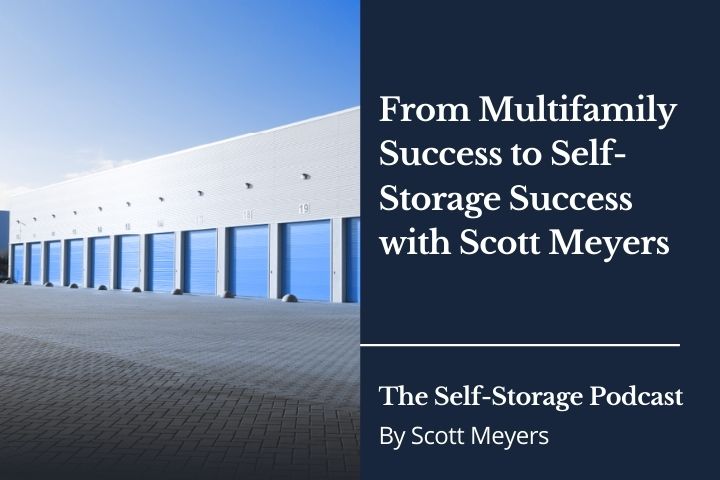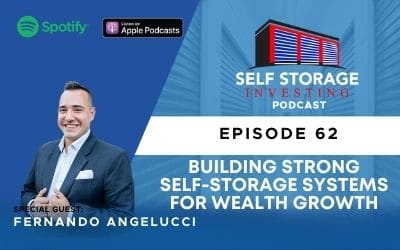Scott Zucker, a lawyer specializing in the self-storage industry, discusses the evolution and future of the industry with host Scott Meyers. Zucker highlights the importance of understanding and complying with the legal aspects of running a self-storage business, especially as the industry continues to evolve with technology and market demands.
He also emphasizes the need for operators to keep their documents and operations in line with legal requirements to avoid potential liabilities.
WHAT TO LISTEN FOR
19:51 Why industry ownership is the reverse trend to other industries like assisted living and hospitality
24:23 Consolidation trends
44:10 Scott’s predictions for the self-storage industry in 2024
48:31 The lending landscape includes troubled commercial loans on the macro level
ABOUT SCOTT ZUCKER
Scott is a founding partner of the Atlanta-based Weissmann/Zucker law firm. He’s been a legal practitioner since 1987, specializing in representing self-storage owners and managers on a range of legal matters from property development to tenant claims defense. He’s an external counsel to the national Self Storage Association and legal advisor to various state self-storage associations.
CONNECT WITH SCOTT Z
Website | Website for Self Storage Law
CONNECT WITH US
Website | You Tube | Facebook | X | LinkedIn | Instagram
Follow so you never miss a NEW episode! Leave us an honest rating and review on Apple or Spotify.
Episode Transcript
Scott Zucker (00:00):
It’s the growing and scaling part that I know is the most troubling aspect for a new operator. I perceive this as a local business. I mean it certainly started that way.
Self Storage (00:20):
This is the Self storage podcast where we share the knowledge and skills from the industry’s leading investors, developers, and operators to help you launch and grow your self storage business. Your host, Scott Myers, over the past 18 years has acquired, developed, converted and syndicated nearly 5 million square feet of self storage nationwide with the help of his incredible team at selfstorageinvesting.com, who has helped thousands of people achieve greatness in self storage.
Scott Meyers (00:55):
Hello everyone and welcome back to the Self Self-Storage podcast. I’m your host, Scott Meyers, and today we have on the show I would like you to welcome to the show our guest Mr. Scott Zucker. Now Scott has been, he is a mainstay into the self-storage industry and if you have been in self-storage for any amount of time you have heard of Scott. He is essentially, he may not call himself this, but the voice when it comes to the legal side of self storage and has not only more stories, if you will, but has more experience in working with some of the challenges. And thankfully we don’t have a lot of challenges in self storage, but he is the guy that people go to make sure that they are operating at optimal capacity and not making sure that everything that they are doing is not only above board, but it’s also in line with best business practices that we adhere to in the industry. So with that, Scott, welcome to the show.
Scott Zucker (01:46):
Thanks, Scott. It’s really a pleasure to be with you and always follow your podcast and it’s great to be part of it today.
Scott Meyers (01:54):
You and I have been in this industry for quite a while. I’ve been at this for 18 years. You’ve been in longer than that and we see each other from afar and I’ve been an admirer of yours from afar and listening to and consume all of your information in terms of your articles and a 10 year sessions as well. But I’m glad that we are able to finally get a chance to get on the podcast and be able to have a little deeper conversation about what’s going on. We call it all things legal in self storage, but there’s a few other things that I’d like to talk about. But in the meantime, for those folks that may not know of you or at least your backstory, tell Storage Nation a little bit about yourself.
Scott Zucker (02:29):
Yeah, well it’s funny to call myself a self storage lawyer. That’s a unique moniker and sort of special to me. I’ve been practicing law for over 35 years, started as a real estate and construction lawyer and one of my first clients was a self storage developer and contractor. So they would build the facilities and we’re talking now late eighties and then ask the silly question, how do I operate them legally now that I’ve built them? So it sort of opened the door for me to research and learn about the regulatory side of a unique industry, a very special industry. And gosh, we both know over the past 30 years have watched this industry explode and continue to develop. I would’ve guessed multiple times that we would’ve seen the top of the market in self-storage development, but boy, it’s still going and there’s still a need.
(03:25):
And we’ve changed the the mentality and culture of our society to need self-storage and the folks that are in the business have just continued to grow with it. So it’s really been wonderful to see and I’ve loved to be part of it. Going back now, I don’t feel like I’ve been doing this for 35 years, but goodness gracious, it’s gone very fast and it’s been fun to watch a lot of my clients be extremely successful and some of them are sort of laying back on their yachts now and I’d appreciating the success and others are still harder work building and growing their properties.
Scott Meyers (04:00):
And that’s the beauty of this industry is it is not passive. I don’t like it when people use that word passive investment. Certainly there’s fewer moving parts than some of the other asset classes that you could be investing in real estate and certainly in developing in, but it is not a hobby. It is a business and you have to walk to four corners and do things the right way. And we found ourselves in our same shoes back in 2005 when we started and we had to reach out to our attorney for the same purpose and just say, Hey, how do we handle these liens sales, and how do we do these things legally and what does it look like to operate in this state versus others? And that is obviously always certainly good insight and we are extremely thankful for our advisors that have helped us along the way.
(04:45):
And I know that you are kind of the watchdog, if you will, as I’ve listened to your sessions and followed you through the years. Yes, you make a living in keeping people safe, but also I’ve seen you go above and beyond to keep people from really stepping into some big messes or some pitfalls and major mistakes that they can make that they’re just unaware of, whether that be in just general business law or specific to self-storage. So I kind of want to talk a little bit about that and then also how your career has evolved along with the industry. So many people come to you to draft simple docs and they gain things from their association or other places, but then they want to make sure that they do things correctly. What does that look like when somebody approaches you? What are the more common areas in which you’re assisting people from the beginning? And then what are some of the areas that you wish that people would probably ask you about that they typically don’t?
Scott Zucker (05:43):
It’s a great question. That’s what makes self-storage industry and working with these operators so interesting. There’s a multiplicity of legal issues that go with the business of self-storage, the industry of self storage, right from the dirt that they’re considering developing. We get involved in the front side, especially now more and more the zoning and moratorium perspective of self storage development. So we get lots of issues right from the get-go, right from the consideration of should I build the property and what does my local community think about in terms of developing self-storage in my neighborhood? Sort of this not in my backyard issue has come up with self-storage. And because of that, and really maybe because of the pressure of a community regarding what self-storage used to be in terms of industrial appearance and usability, they’ve become these beautiful properties with beautiful facades, beautiful development, unique development.
(06:46):
You watch these properties emerge and become part of a community and be proud of the appearance and the uniqueness of these properties. So again, we get involved from the dirt side, from the construction side of making sure that things are done in a proper way with the contractors that they’re using once it’s built, how they hire people and utilize their managers, whether property managers, their own staff under proper employment laws with regard to the operation of the property. Then we get involved in the operation of the facility itself, the regulatory compliance with just as you said, there’s 50 state lien laws that they have to deal with. So if there are multi-state operators, they’ve got to deal with multiple laws. And then on top of that you have the federal laws that apply to self-storage operation, the accessibility laws under the A service members law that affect service members that may be tenants, the bankruptcy laws that may come into effect from a creditor debtor situation with operators.
(07:47):
Then you go to transitions of people selling their properties. It really covers everything and we really enjoy being sort of the answer resource for operators out there on all these unique aspects of their business. Really what I can say is a selfs storage business is a real estate business and a business business. And so it covers both areas so uniquely and they’re intertwined. Makes Mike Day sort of interesting because I’ll get calls from A to Z relative to an operator, even experienced ones. They don’t have to be new ones, the experienced ones that see new things and need answers and guidance. And so it’s really interesting to have been part of that and watch that develop. I have to admit, I sort of know the answers to the questions that are coming. We’ve written the books knowing that those questions can be answered. And even so there’s still unique aspects, nuances of questions that come up in these communities and sometimes they’re challenged, sometimes they’re easy.
Scott Meyers (08:55):
Well, I think you find that as a normal course of business in any business. And I too came from single family houses and apartments and office buildings and industrial warehouses until I found self storage. And then you find out that yeah, this is just a little different animal, a little more unique in that you are your layering and operating business on top of it. And for many reasons, that’s why you’ll see that there are business brokers that are listing buying and selling self storage facilities for folks because it kind of bridges that gap of an operating business and you can either lease the real estate or own it. And so that with those additional nuances brings additional opportunities and liabilities that come along with that as well. And if you look back 35 years ago, your purchase agreements were maybe two pages and now they’re a little longer.
(09:39):
And our private placements for our private equity, they’re 70, 80 pages now approaching 90. And that’s just in the course of business. We find some gotchas. There are sometimes some nefarious folks that try to pull one over. And so it makes itself into case law and it makes its way into our documents. And so we do have to continue to keep up on that. But this is a static industry for the most part. There’s not a lot of new things that come along that dramatically change our industry. I mean, we can look back to maybe going online and the kiosk from the way that we operate a facility to unmanned, but there’s not a whole lot that really changes much. I think AI is going to perhaps upset a number of different industries and force us to look at things a little bit differently. So are there some things right now that you’re seeing Scott, that are maybe either on the horizon that you’re dealing with right now that maybe should be on the radar for the rest of us that you see coming that could be a potential liability or at least maybe an opportunity that we need to look out for that you’re seeing come across your desk these days?
Scott Zucker (10:42):
Well, I have to challenge you with the concept of static in this industry. To me it’s ever evolving and the technology side of the industry has forced a legal compliance shift as well. So I never see it as static and I don’t see it as old school. I think that the evolution of a first generation to fourth generation facility is amazing to watch because of the technology and the advances we have, and we haven’t even gotten to the AI part yet. But I think about the inventiveness of operators and vendors in our industry that have created systems that make the operation of self storage that much more user-friendly and enjoyable and consumer interfacing that are positive, that make the job easier, both from the manager operator side and from the tenant side. And there’s been sort of a clash as a result of that evolution because it’s a very old school business.
(11:43):
If you think about the brick and mortar side of who we are, we really think about we build a building, we rent the spaces, we have a lease agreement, and you’re certainly right, we’ve gone from one page lease agreements to eight page lease agreements and believe me, blame the lawyers. It’s all our fault. Every situation that’s come up, we’ve tried to address a rental agreement provisioned to try to protect an operator or be fair to a customer in that document. So those have evolved, but it’s gone from that sort of brick and mortar contract relationship, landlord tenant to a multifaceted aspect of just like you said, kiosk entry into a building or automated gate access entry, Bluetooth locking systems, camera systems that allow visual acuity to watch the property when you’re not there. Motion sensors inside units to validate concerns from customers about access to their spaces, drones over properties so people can see what’s going on.
(12:55):
To me, it’s so fascinating to watch us catch up to the technology, but sometimes the legal compliance lags behind. So I’m worried about, and I’ve been talking about this factor that you can move to the new technology of operations, the remote unmanned, like you’ve mentioned, this virtual nuance of how to operate a facility, but you’ve got to have your documents keep up with your operations and you’ve got to train your managers or work with your property management companies to keep up with those operations as well. You can’t let one get ahead of the other or there’s going to be gaps that are going to create liability. And I worry about that because the technology is happening fast and furious and operators are starting to utilize it to save money in the longterm with their operations, which is all great, but I feel like there’s a gap sometimes on the legal understanding of these changes, sort of revolutionary issues that they’re dealing with. They got to keep up with the law.
Scott Meyers (14:01):
Well, and you’re right, and thanks for correcting me. I need to take my own advice as I work with my students and just tell them just that is that this is a business and not a hobby and you need to keep up with it. And as you’re mentioning all these different areas in which we have evolved behind that comes a set of processes that needs to be put in place and you need to train your staff because as I think you’ve said from stage several times, ignorance is not an excuse when you’re in a court. And if you didn’t know and if your staff member didn’t know and they committed a crime or worse or there was negligence just because they didn’t know or you didn’t know that there’s no excuse some, so you have to pay attention. This is an operating business and you have to adhere to the laws of the land before you just embark upon this.
(14:50):
It’s exciting to do a deal, but then you can’t just, there’s hunters and there’s farmers and many times the entrepreneurs are more hunters and they either let the farming just handle itself or not at all. And that’s where you get into trouble is not to attending your field. But that being said, what are you seeing that maybe, I guess I’ll maybe frame it in a different way. What are some areas of which you’ve been around a little while, you’re more like Wayne Gretzky I would guess at this point you see more than most people have and also the good and the bad skating to where the puck is going. Where do you see our industry going and changing, say whether that’s in the next five to 10 years, what is going to have the biggest impact that we need to be aware of?
Scott Zucker (15:35):
I love the analogy to Wayne Gretzky. Yeah, I’m trying to follow the puck and it’s really been moving pretty quick in our industry, which has been exciting. So let’s back up that one of the things that I’ve done and been proud to be a part of as my connection to the National Self-Storage Association is to be a participant in the model of updating each of the state lien laws to modernize those laws, to try to keep up with the changes. So if you think about it just on the most elemental level of emails versus certified mail, so to move a statutory requirement to electronic mail notice as compared to green card certified mail postal service is just such a significant change in the industry. But let’s talk about just even using the email now, you need to have some systems in place to follow the ball on the email.
(16:33):
Is the email being delivered as it bounced back? It comes with just like you mentioned, this sort of passive active piece of operations. Just because we have the technology of email systems for notification doesn’t mean you can just send an email and forget and leave and go good enough. There’s elements of follow-up and compliance that go with something as simple as that. The same thing is true with the movement towards remote virtual properties. Again, it’s interesting you say this from the passive active perspective, you can go virtual remote, you can put a kiosk in the system, you can add Bluetooth locking, whatever, but the expectation of your customer that if they need something, someone is there somehow adds this level of connectivity that you need in your industry, your facility. So if something goes wrong or there’s a question, and I’m a big believer that if you’re replacing a manager to an unmanned site, that you have to have systems in place, particularly some sort of video oversight system at your property.
(17:46):
So it is as if the manager was there, you can see what’s going on. If a tenant needs something, they know how to contact someone, whether it be through a mobile application that you have or a phone number on a wall somewhere with a sign. So it’s these sort of shifts in our opportunities with the industry that hopefully will lower costs increased consumer use, reduce liability also has obligations for the operator to maintain their systems and enhance their systems to replace what otherwise might be a manager on site. And I think that just to jump in, I mean I think that that’s where the liability comes at for me in terms of following that puck through. The biggest issue for me is protecting a self storage operator from liability for doing something wrong that they can avoid doing wrong, and the only way they can avoid doing it wrong is knowing how to do it right. And that’s why I do the speaking that I do and the articles that I do. I just want to draw some attention to how they should be doing it right to elevate their perspective of how to do things as best as possible that the best practices of self storage.
Scott Meyers (19:02):
Well, and in that comes a lot of wisdom, and Scott, you were very entrepreneurial, first of all at the beginning of your career, recognizing that there’s a need, there’s a hole in the marketplace for folks in this ever-growing industry to be able to do things right and to be able to get the knowledge and the information and documents and everything else that the services and really just the information that you provide to keep people from doing things the wrong way, but also then recognizing that, well, how do they know they’re doing it wrong if they don’t know what the right thing is to do in the first place? So that is also key. And so as we look at our industry and as it continues to mature, this is really one of the last great, call it the wild wild west or the last frontier in commercial real estate for rolling up.
(19:51):
We’ve seen this happen in the other industries where the ratio is opposite to self storage where 20% of all the units and square footage in self storage is owned by the REITs, and 80% are still mom and pops on the bottom. And then smaller players, regional players, and even national that considered art or REIT that just aren’t at that level yet. Whereas assisted living and the hospitality industry and office buildings, there’s large hedge funds and developers and groups that it is the opposite. It’s only 20% or less that own individually office buildings, assisted living facilities and those other asset classes. So as we continue to evolve and as more entrants come into our industry from just beginning investors looking for their first facility to other folks that are coming in with a splash and a lot of money behind them to scale, develop, buy, roll up, and then sell off to a larger player or be that larger player are of the, perhaps since we’re talking to you, what are some of the pitfalls that maybe some of the new entrants that may overlook as they come into the industry, especially if they’re coming in to grow and scale at a very quick pace?
Scott Zucker (21:00):
Yeah, it’s the growing and scaling part that I know is the most troubling aspect for a new operator. I perceive this as a local business. I mean it certainly started that way. Operators actually, I wouldn’t even say operators, real estate guys that probably came from housing or multifamily that had a piece of property that recognized that it was sort of the best use of that land based upon its location. It may have been off a road, it may have just been in an industrial area, but there was this need for storage, I’ll even say warehousing because we sort of evolved from the warehouse side. Obviously there’s a significant legal difference between warehousing and self-storage, but there was a need to store stuff and it was very much on a local level. So you saw a lot of the developers, and I know you work with a lot of guys that have land that are in a local marketplace that has the need that sort of built up demand for storage of stuff.
(22:05):
And look, they could go to the left on the path and do sort of warehousing industrial storage. That’s obviously a growing area for business product supply, logistic chain storage, but that’s a different business than self storage, which typically has been on an individual family level. Certainly we have business customers, but it’s not large scale storage operations like you see in some of these industrial areas. So going back to these local guys who have developed properties, found a niche, make a good R o I on their self storage rentals because they’ve built a 20,000, 30,000, maybe 40,000 foot facility has been great and they’ve done well, and then maybe there’s an opportunity to expand or another larger local operator, maybe regional operator wants to get into that market and will buy their property and expand and grow. And that’s just the evolution of real estate. We’ve always been in that situation where there’s someone out there who wants to maybe acquire someone else’s property to grow their own platform.
(23:17):
And that’s been what’s happened in self-storage. It’s happened in our urban markets to a larger degree with a lower cap impact with obviously gigantic valuations of these properties in urban spaces. It’s been maybe less so in secondary markets, maybe a little less so in tertiary markets, but everyone who has done this because they found the demand for the need for storage, I think have been successful. Now we’ve had our recessionary up and down with real estate, and I don’t think the fault of the industry or the individual developers, there’s always going to be the ups and downs in real estate. We can’t help it. You just have to be smart about how you leverage your property and do good proformas about who’s going to use your property and understanding there’s going to be delinquencies in certain landlord tenant relationships. But if you think through that and understand some percentage of liability risk on revenue, these smaller operators can grow into larger operators and continue to grow their platforms.
(24:23):
I’m very positive about the continued development of our industry. Now, when you asked about consolidation, look, there’s a lot of money out there with large REITs and large operators that are being well financed by funds around the world. It’s really hard to say no to some of that money being offered for these properties. So I do think that there’s going to be inevitable consolidation in the market. Probably the number one reason in my head as to why there’s consolidation is the fact that there’s limited bandwidth in the world for marketing in our worldwide web, and I’m not a technology guy, but it’s that front page aspect of what people find when they use their mobile apps or their websites. It’s a really competitive space, and I think that the big guys have the funds to get higher up on the list. We all know how that works, and I think that has triggered consolidation more than anything because of the need for that space on that website. People are not going to the yellow pages going from a aardvark self storage to Z Z, Z xylophone self storage anymore. If you’re not a, you got some issues.
Scott Meyers (25:39):
Yeah, that’s always been one of the challenges in our industry because there’s not a whole lot of differentiation. I mean, you could argue that this is a commodity, and to a degree it is. When somebody does a search, what’s close to them? If they pop on their mobile website, does it look clean, attractive, safe, secure, well-lit if it ticks those boxes? They’re not looking for school systems. They’re not looking necessarily even for path of travel because they’re going to put it there once or maybe go back to a couple times. So there’s not much we can do to differentiate like we can in housing or office buildings with views and different things of that nature. It’s, Hey, I got to check this off. My list of things to do today is rent a storage unit, and if they’ve got a special for half off or one month free, then I’m in. And so that typically doesn’t, those decisions don’t go to page two on Google or page three, they’re on page one. So I agree a hundred percent that is the game. That is the game in this industry without a doubt.
Scott Zucker (26:35):
Yeah, I think that one thing goes back to the local aspect of this, and I think that this would be true. I don’t have the statistics of really what is the number one driver of occupancy, whether it be drive-by or internet. It may be pretty close, but a clean, well-lit appearance of safe and secure properties to me is the number one differentiator of a property. And it goes back to the first thing you said about active versus passive owners. If people are going to invest in self-storage, they need to be proud of their property and they would want their family to rent there. And I really think that if, and this goes back to we all think this way about our businesses, we want to be proud of what we do and hold it in high esteem as a member of a community. I think that if you keep your properties that way, that may itself be a differentiator in many ways that people feel comfortable storing with you and have that perception of care from the operator or owner of the property.
Scott Meyers (27:42):
I would agree. And that pride of ownership is pretty evident if somebody were to walk onto the site. I mean, the goal of our website is to either get a reservation or a rental and for them to come down and not be surprised that the picture on the website that it matches, and that resides with the person who is overseeing that property or the site manager. And we can tell pretty quickly if we’re getting ready to buy something, if there’s a pride of ownership when we walk around and my managers as I walk around with them, if they’re not picking up cigarette butts while I’m walking with them, then we’ve got a problem because I’m not so important that they can’t go and do something or at least notice. And if they’re not even noticing, then we have to have a discussion because that does come out in the consumer’s eyes and their stuff is going inside of a box and they’re not going to come back for another six months or so maybe to look at it again. But they want to know that somebody is minding the store, if you will, and the store is a place where their stuff is being stored. So I want to pivot, and maybe it’s not even a pivot, but as
(28:45):
We were talking about different asset classes and over the years we’ve had to get somewhat creative in some instances to allow the city planning committee, the board’s zoning to allow self storage. And as you mentioned, nimbyism is a real thing, and you’ve dealt with that. You’ve been on the front lines of that for several years. And so we’ve added in certain buildings, if we’re converting retail on the ground level, what people see in storage above, and it’s kind of hidden, not really there, but found on the internet and by signage and just a number of creative ways of allowing the city to see that we’re good quiet neighbors and it is something that is needed. But I’m also seeing, you had touched on the fact that logistics is, it’s a popular asset class industrial with Amazon and everything else that feeds Amazon with them being the driver and the rush to the last mile right now where we’re starting to see where storage is beginning to fit in, we’re incorporating this in some of our facilities as well with some larger sizes and areas of our buildings that are set aside for more
(29:48):
traditional, almost logistics type businesses and these customers that we could allow to come in. And we’re also seeing a huge rise internationally in terms of what storage looks like from self-storage, which is new in some markets, and it’s evolving from a logistics business where people just need smaller spaces. I mean, take either or both. Do you see storage evolving in the states to become more like a logistics and we kind of blend to meet the needs of our clients that need that last mile like an Amazon or other places and maybe some larger buildings being built or converted that handle both and internationally, do you see a rise where the model from the beginning begins to look like that or am I just off base?
Scott Zucker (30:31):
No, I don’t think you’re off base at all. I mean, the mixed use concept for self storage as an element of being approved, as part of the planning department’s acceptance of properties has gone up exponentially. I mean the ability to add a retail component, maybe even a housing component on top of self storage for, again, a mixed use opportunity of that space as space becomes less and less available in certain areas that people want to be. I mean this sort of live workplace concept, self-storage I think fits into that because the floor panels of some of these homes are smaller, people still want to have access to their property. So the self-storage piece I think works in perfectly in a what would likely be as you’re describing an urban area where there’s limited footprint and there’s an opportunity and need for self-storage or demand for self-storage.
(31:23):
And the only way you’re going to get it is to be flexible enough to accept a mixed use opportunity that the combination of self-storage with this last mile logistics is a fascinating new question. And it becomes a zoning issue. It becomes a statutory compliance issue because warehousing by itself is entirely different from self storage. So I’m not here to say that you can’t do both, but you can’t do both because you want to do both. You can only do both. If someone will allow you to do both and then your operational issues are separate, you’re going to need a demising wall of demising walls between your businesses because you can’t mix self storage and last mile logistics. But I think what you’re saying is so true, and we have seen it in the European market. In fact, just recently at this S S A conference, we were able to talk with and meet with the international representatives of a lot of these self-storage operators around the world. And they’re seeing the same evolution of their business for logistics and for self-storage as you’re describing, but they have, more often than not, they have more opportunity for land use development than we do. We’ve really done sometimes a poor job in our communities of just not leaving enough space for the use that we really need. And I know we’re coming back to that and reusing properties and rethinking the issue overseas. They’re just at the beginning of a lot of this development. So we have a lot more opportunity to be creative from the front end.
Scott Meyers (33:01):
Yeah, we’re seeing, and as business continues to evolve in general, the mixture of either coworking space or like a flex space that has included in not only logistics that’s been around forever, but also in cell storage too. And we’ve had some, I don’t want to say fits and starts or experiments, but what we thought would be a large uptake in the incubator space or flex space at our facilities and creating room for it, although it was taken and people will have an address, but they didn’t utilize it, and maybe that was the only reason. We just assumed that there would be a little more of an uptake. But certain markets, it’s just the opposite of that. And they’re clamoring for those spaces. And that was largely driven. I was in industrial space, we had warehouses back in oh seven, in oh eight, and when these businesses shut down or when people were let go, well, they went out and bought their own truck and sets of tools and they needed some warehousing and storage, and so they just wanted 10,000 square foot or 5,000 square foot to start their own business in the same industry in which their employer just let ’em go because of the economy.
(34:02):
The demand was still there, but their employers just couldn’t keep ’em. And so I sense that as we head into, if depending on whether you agree we’re in it or heading into a recession, I think we’re going to see that all over again. And there’s going to be another wave of entrepreneurialism that’s going to drive some of that space that I think is in between the big warehouses and self-storage that these more entrepreneurial businesses and storage customers are going to need.
Scott Zucker (34:28):
And I don’t have a problem with that. I just want to alert people to recognize as they pivot to demand for their space, for their real estate space, these businesses as they transition maybe from less self storage temporarily to more commercial space or less self storage to an office warehouse scenario, just like you’re describing, they have to recognize that that’s a shift in their business operations, their insurance, their land use, their zoning restrictions. You have to be careful that just what we were saying, there’s a gap in decision-making and movement in a business. Sometimes that catches up with the legal. I unfortunately have been on the other end of a phone call when a business has been shut down because they did not have the proper zoning for what they were doing. They did not have the proper insurance for what they were doing. They were quick to fit the needs of their customer without thinking about the obligations of the law.
(35:32):
And unfortunately, it’s very hard to come back from those decisions where you’re not thinking through some of the legal ramifications before you make those decisions. And I hate the fact that law’s in the way of business opportunity, but it is what it is. That’s why I apologize in advance for being a lawyer so many times is because we do make it more difficult for compliance purposes for being a business owner, but it is what it is. Until we can make those laws go away, people have to make sure they understand what the laws are to stay out of trouble.
Scott Meyers (36:08):
Well, Scott, you never have to apologize for that, for keeping us from stepping anything. And don’t forget, we always love our lawyers that are on our side. We just really don’t like the lawyers that may be on the other side of any other issue or challenge that we have. Those are the only ones we don’t like, but you’re in our cap at least, hopefully for the most part. And yes, too, to maybe make a very simple delineation, self storage is self storage and that you as an owner do not have access and you do not create a bailment or take any liability for their contents. That is in a self storage unit. It is the client’s unit. Warehousing is completely opposite in which it’s open and you put somebody in charge of basically picking and pulling things down and depending upon the style of business, completely different, completely different set of laws, completely different set of liabilities.
(36:56):
And the first step in guarding yourself is with insurance, as you mentioned as well. So completely different set of guidelines and what you insure and the type of insurance that you have to have as well. And yes, zoning and hopefully everybody is starting there as well so that we could spend another hour with a masterclass on just that. The difference in it, Scott, but thank you for bringing that up and recognizing that I more just want to have a conversation to see if that’s what you’re seeing, if there is a morphing of storage into bleeding over into and including other asset classes that we may see on the horizon.
Scott Zucker (37:29):
Yeah, I mean, one thing about self-storage though, and I think it’s true what you said, and we’ve seen this grow in our industry, the self-storage industry is as long as there’s demand for people to have a place for their property, there’s stuff there will always be a need for self-storage. And I do believe that we’re providing a true unique service opportunity to our communities by having self-storage. And it’s just like you said, can’t forget the word self in storage in our business because all we do as real estate owners is rent space suitable for storage. It’s a unique, just like you said, non-payment relationship, no care, custody or control of the property. We’re not storing it for them. We’re just giving them the space we to store their property. And I truly believe, based upon the analytics and statistics that I’ve seen about the use of self-storage, we’re still relatively low in the national use of self.
(38:35):
And as we continue to grow our communities, both in an urban side, a secondary market, tertiary market, as we continue to develop those areas, people need a place to put their things. And I think self-storage will continue to grow along with that demand. Again, we’re going to have our ups and downs as all real estate cycles do. Because it is a real estate business, the valuations of the properties may be affected based upon occupancies. But I also believe this to be true about self-storage. I think we’re very much a recession resistant industry. We’ve done very well to manage because whether things are good or bad, there’s this transitional aspect of people’s lives, and while they’re in those transitional aspects, they need a place to store their property. And self-storage has met that need. And I applaud the operators both small and big for understanding that psychology of need for the storage of the property.
(39:38):
And that’s why they’ve been successful. I mean, again, I come at it only from the point of view of I understand the need and I understand that they’re building it to provide that need. I just want to make sure that they meet the rules of doing it as they’re operating their businesses. And I’ll tell you, it’s not just the small guys who make mistakes. The big guys do too, that even with staffs of lawyers, they will be the first to admit they can’t keep up with all the changes in the laws. They do their best to stay up to date on all of these ever evolving statutes and other laws that impact their business. Consumer protection laws, access disability laws, creditors’ rights times to contact debtors by phone or email. There’s a million laws out there that have to be followed. There’s no sort of guilt that goes along with not being up to date on all of them, but trying to stay educated on as many as possible is really a good task.
Scott Meyers (40:47):
Well, as we talk about many times in many conversations in our mastermind, which is a group of folks that are growing and scaling, it’s all about a team. We can’t know it all. And all of us have our superpowers. And usually if we’re at the heads of our organizations, it is to go out and do deals is to find good pieces of dirt to develop on and good acquisitions to bring into the portfolio. And most of us that are geared towards that, we don’t really like to spend a lot of time or it’s on our forte to keep up on HR issues, on lean laws and those other things. Again, back to the hunter farmer. And so it is crucial and it’s imperative that you have good CPAs that are keeping an eye on the numbers that you have HR professionals, whether outsourced or in-house and that you have, and we arguably have it on three fronts on our end, and that is looking over the documents on the acquisition, it’s looking over the operation side and the liabilities, which we’ve been talking about mainly.
(41:44):
And also in the security side. We raise private equity, we do funds and we do private placements. And having folks that have expertise in those areas to once again keep us legal compliant and out of trouble so that we can do the things that we are good at and like to do, which is go find and do more deals. And so it is about a team and having Storage Nation, I’m giving you all permission. You don’t have to know at all. You just have to have the right team members that do know and own their space. And that’s why we brought Scott on here as well, because he owns the space and is the person to be able to go to figure out, not only figure out, but to keep us from making those mistakes.
Scott Zucker (42:22):
So the number one thing that I like to do the most is educate and protect. Again, it’s such a good industry with such amazing people, hardworking folks that really have invested their effort and energy and wealth into this industry. And it’s nice to see the success stories. And I try with what I do in terms of information that we try to send out and be a resource for people to protect them from making those mistakes. I do a monthly newsletter through our farm. We have a program through the National Association called the Self Storage Legal Network. There’s lots of articles that you see, and as you mentioned, the magazines in the industry, there’s a lot of information out there. So there’s always a way for operators to get answers to their questions. It doesn’t necessarily involve having to call a lawyer. There’s a lot of resources out there of published materials that we’ve been doing for years that hopefully can be guidebooks for operators. I know you also have those resources for your folks, which is great. I mean, it is true what you said in a lot of ways that the industry is a simple business with concerns along the way, but a lot of those questions have already been answered that they have. They just need to go to get the resources to help them answer those questions, to stay on the straight and narrow.
Scott Meyers (43:57):
Well, Scott, I want to thank you so much for your time, and as we wind down, my crystal ball has been in the shop for a while and for the past six months I’ve been asking all of my guests and we follow a number of economists and experts in the industry and our industry and just in business in general and looking at the financial markets, and we’re looking at, again, whether you think we’re in a recession or heading it into one, we’ve been preparing for this in a number of different ways and doing our best to predict what’s going to happen. But where do you see the industry in 2024 in terms of maybe let’s just talk about activity level or any other changes that you see? Is there going to be an increased productivity, increased activity on the acquisition development side? I know we’re heading into a time where the feds say they’re going to keep rates, maybe where they’re at. We’ve got an election year, but just an overall take from your viewpoint what you’re seeing and dealing with a number of other operators and other maybe looking at other nuances and happenings in our industry and in this space right now. What are some of the predictions that you have for 2024?
Scott Zucker (45:05):
Yeah, I wish I had my crystal ball working as well, but I’ll do the best I can. I mean, I’ve recognized that there is a cycle where they’re in it or coming to it. I think we all recognize that. We’ve seen occupancy rates go down. We’ve seen rental rates slow, if not decrease. We’ve seen discounting go up. It’s sort of an inevitable step back from the heyday of Covid and post covid where people were rushing to put stuff in storage because they needed to work out of their own. So it’s just this reality of a cycle, whether that recession will be deep, I’ve heard no, but I think that in the context of self storage development will inevitably slow. I think that because of the pressure on just like you said, interest rates that impact loans, there’s going to have to be more sales of operators that did not prepare for the leverage of their properties relating to lower occupancy and lower revenue to meet those loan deals that they had done maybe only a few years ago when everything was looking upwards and nothing was looking downwards.
(46:32):
But that’s okay because we’ve been there before. Operators were smart, but lending institutions were smart about this cycle. I don’t think they let anyone get way over their skis. I think there won’t be any foreclosures or bank repossessions of self-storage. I think what you’ll see is a nice slow move to operators who may get a good return on their dollar for opportunity to sell their properties to those mid-tier regional and some national operators who are hungry for earnings that want additional property. So we’ll see that happening. Again, I think it will be more just the bottom line, slow down in development and more of an up push towards consolidation and restructuring of these debts. And again, in a positive way, I don’t see a frenzied movement in our industry one way the other, but there will always be storage. There will always be a need for storage, whether we’re going to be at 92% occupancy or 85% occupancy or 70% of occupancy, as long as that loan to value wasn’t 90%, these operators are going to be fine, but some may have pushed the limits based upon their performances, and those are the ones that will want to sell, maybe need to sell.
(47:55):
And boy, there will be people out there that are willing to buy. So I’m not worried about that cycle on the business side, but the development side will be tough, not just tough because of the industry and the compression of supply and demand, but again, going back to zoning regulations, going back to lending that it will be at higher rates that they may have seen for a long time and underwriting requirements that will require financials that some of the operators may not be able to meet. They’re going to have to look for alternative and creative ways to do these projects.
Scott Meyers (48:31):
I would agree wholeheartedly. I think there will be some challenges. And we are seeing on the macro level, there’s a lot of troubled commercial loans out there in different asset classes, but even those, we’re seeing that the lenders aren’t so willing and ready to foreclose and bring them back on the balance sheet. They’re doing workouts, workarounds, they’re doing some short sales and other measures that folks have taken in the past, and they’re not so quick to ring up the attorney’s fees and then have something sitting on their balance sheet or a property that’s not producing decaying because nobody’s minding the store in the marketplace as well and not, I don’t think that we’re going to see the cliff like we saw with Lehman Brothers back in 2007. That just doesn’t, oh gosh,
Scott Zucker (49:15):
I hope not. I don’t see it. I don’t. I’d like to think we learned our lessons.
Scott Meyers (49:19):
And you’re right, I think there were some safeguards that were put in place, and those lending practices were pretty much, we learned most of the lessons that needed to be learned during that timeframe. And so I don’t see a whole lot of really big gotchas or pitfalls this time around. I may be proven wrong, it could be a couple of natural disasters or a war something that may cause things to go in a different direction, but I believe this one is going to be a little bit softer landing, as you mentioned as well. So, well, Scott, once again, thanks so much. Appreciate you taking time out and speaking to Storage Nation and just sharing more of your wisdom and knowledge and maybe a little more peek behind the scenes. What is the best way for people to be able to connect with you? And I know you’ve got a number free resources out there that you can point them to as well. So where would people go to learn more about what you’re doing?
Scott Zucker (50:01):
Well both contact me directly through my law firm, my legal practice, which is Weissman Zucker, so it’s scott@wzlegal.com or through the National Association and the Self-Storage Legal network, which is law.com. We’re happy to be a resource for operators. If we can’t help you, we’ll direct you to people that can. And Scott, I really appreciate opportunity to talk with you. What you’re doing with your folks are great and continue wishes for great success. And it’s been fun doing this journey together. So it’s always great to work with others like you to better our industry.
Scott Meyers (50:45):
Well, it’s a great industry to be a part of. As I mentioned, I’ve been in a number of asset classes and got involved in a number of different groups and organizations and associations and all of those. And this community is more like a family and everybody’s willing to share and elevates the tide for all boats. And we can all compete, but do it in a friendly manner and keep that 5% close to our chest. But it is been an incredible journey and a great community to be a part of, and you’re one of those people that make it that way. So I appreciate you as well.
Scott Zucker (51:13):
Thank you.
Scott Meyers (51:14):
Thanks. All right. Thanks, Scott. Take care.
Self Storage (51:22):
Hey, gang, wait three things before you leave. First, don’t forget to follow the Self-Storage podcast and turn on your notification so you never miss another episode. And while you’re there, please leave us a five star review if you like the show. Second, be sure to share your favorite episodes and more via Instagram, and don’t forget to tag us. And lastly, head to the links in the show description and hit follow on Twitter and Facebook to get a front row seat as we grow and scale our business and bring you along with us.















